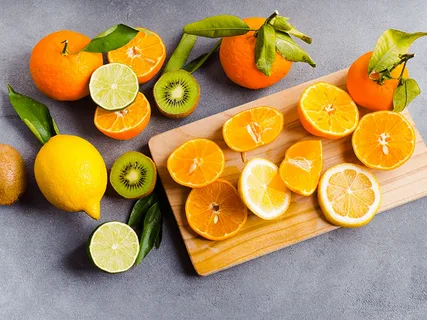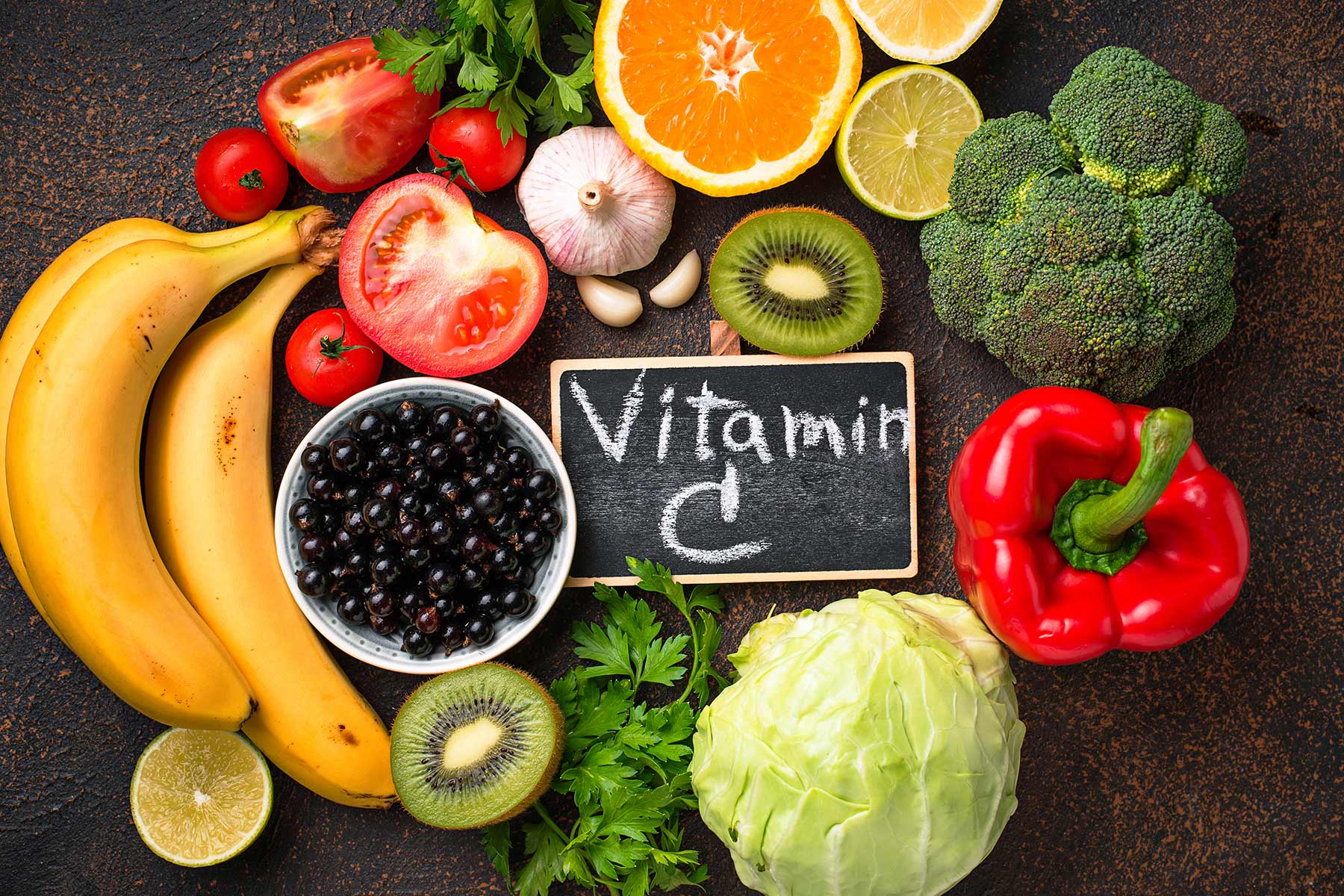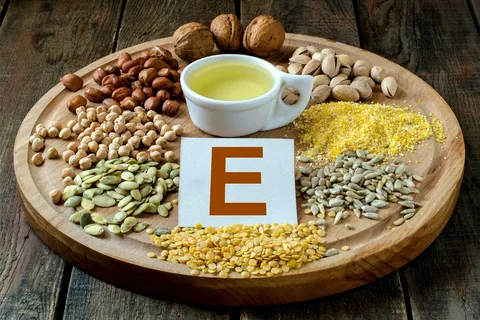Vitamin C, also known as ascorbic acid, is a vital nutrient with numerous health benefits. It’s essential for the growth and repair of tissues in your body, and it plays a crucial role in the formation of collagen, which is necessary for skin, cartilage, and bones. Additionally, Vitamin C is a powerful antioxidant that helps protect your cells from damage caused by free radicals. Citrus fruits are among the richest sources of Vitamin C, and incorporating them into your diet is a delicious and effective way to meet your daily needs.
The Benefits of Vitamin C
Immune System Support
Vitamin C is renowned for its role in supporting the immune system. It enhances the function of white blood cells, which are crucial for fighting infections. A sufficient intake of Vitamin C can help reduce the duration and severity of common illnesses, such as the common cold.
Antioxidant Protection
As an antioxidant, Vitamin C helps neutralize free radicals that can cause oxidative stress and lead to chronic diseases. By reducing oxidative damage, Vitamin C can help lower the risk of conditions such as cardiovascular disease and certain cancers.
Skin Health
Vitamin C is vital for the synthesis of collagen, which is a key protein that keeps your skin firm and elastic. Regular consumption of Vitamin C can promote skin health by reducing wrinkles, improving skin texture, and enhancing overall skin radiance.
Iron Absorption
Vitamin C enhances the absorption of non-heme iron from plant-based foods. This is particularly beneficial for individuals following a vegetarian or vegan diet, as it helps prevent iron deficiency anemia by improving iron uptake from plant sources.
Citrus Fruits: A Rich Source of Vitamin C
Citrus fruits are packed with Vitamin C and are an excellent choice for boosting your intake. Here are some popular citrus fruits and their Vitamin C content:
Oranges
Oranges are perhaps the most well-known source of Vitamin C. A medium-sized orange typically contains about 70 mg of Vitamin C, which is roughly 78% of the recommended daily value. They are also rich in fiber and other essential nutrients.
Grapefruits
Grapefruits are another excellent source of Vitamin C. A half of a medium grapefruit provides approximately 38 mg of Vitamin C, making it a valuable addition to your diet. They also offer a good amount of fiber and various antioxidants.
Lemons
Lemons are not only a great source of Vitamin C but also versatile in cooking and drinks. The juice of one lemon contains around 30 mg of Vitamin C. Lemons are also known for their high citric acid content, which can aid digestion.
Limes
Limes, similar to lemons, are rich in Vitamin C. The juice of one lime contains about 20 mg of Vitamin C. Limes can add a zesty flavor to a variety of dishes and beverages while boosting your Vitamin C intake.
Tangerines
Tangerines are a sweet and convenient source of Vitamin C. A medium tangerine provides around 30 mg of Vitamin C. They are easy to peel and perfect for snacking or adding to salads.
Incorporating Citrus Fruits into Your Diet
Breakfast Boost
Start your day with a Vitamin C boost by incorporating citrus fruits into your breakfast. Add orange slices or grapefruit segments to your cereal or yogurt. A glass of freshly squeezed orange juice can also provide a refreshing and nutritious start to your day.
Salads and Salsas
Citrus fruits can enhance the flavor and nutritional profile of salads and salsas. Toss some mandarin oranges into a spinach salad, or make a citrus salsa with lime juice, oranges, and grapefruits. The bright, tangy flavors complement a variety of dishes and add a Vitamin C kick.
Smoothies and Juices
Smoothies and juices are a great way to enjoy the benefits of citrus fruits. Blend oranges, grapefruits, and lemons with other fruits and vegetables for a nutrient-packed smoothie. Freshly squeezed citrus juices can also be a delicious way to boost your Vitamin C intake.
Marinades and Dressings
Use citrus juices as a base for marinades and dressings. Lemon or lime juice can add a zesty flavor to grilled meats or vegetables, while also providing a dose of Vitamin C. Combine citrus juice with olive oil, herbs, and spices for a flavorful dressing.
Snacks
Citrus fruits make for convenient and healthy snacks. Enjoy tangerines or oranges on the go, or try dried citrus fruit slices as a snack. These options are not only delicious but also provide a satisfying source of Vitamin C.
Tips for Maximizing Vitamin C Intake
Fresh vs. Processed
For the highest Vitamin C content, choose fresh citrus fruits over processed products. Fresh fruits retain more of their nutrients compared to juices or canned fruits that may have added sugars and preservatives.
Storage
Store citrus fruits in a cool, dry place to maintain their freshness and Vitamin C content. If you need to store them for a longer period, refrigeration can help preserve their quality.
Variety
Incorporate a variety of citrus fruits into your diet to benefit from different nutrient profiles and flavors. Mixing oranges, grapefruits, lemons, and limes can keep your diet interesting and nutritionally balanced.
Frequently Asked Questions
What is the recommended daily intake of Vitamin C?
The recommended daily intake of Vitamin C varies by age and gender. For adults, it is generally recommended to consume 75 mg for women and 90 mg for men per day. Pregnant and breastfeeding women have higher requirements.
Can you get too much Vitamin C from citrus fruits?
While it is rare to get too much Vitamin C from citrus fruits alone, excessive intake can lead to digestive issues such as diarrhea. The upper limit for Vitamin C intake is set at 2,000 mg per day for adults.
Are there any health conditions that benefit specifically from higher Vitamin C intake?
Yes, conditions such as scurvy, which is caused by Vitamin C deficiency, and certain chronic diseases like cardiovascular disease may benefit from higher Vitamin C intake. However, always consult with a healthcare professional before making significant changes to your diet.
Can cooking citrus fruits affect their Vitamin C content?
Vitamin C is sensitive to heat, so cooking citrus fruits can reduce their Vitamin C content. To maximize your intake, consume citrus fruits raw or add them to dishes at the end of cooking.
How does Vitamin C support skin health?
Vitamin C supports skin health by aiding in collagen production, which helps maintain skin firmness and elasticity. It also has antioxidant properties that protect the skin from damage caused by free radicals.
Is it better to consume whole citrus fruits or drink citrus juice?
Whole citrus fruits provide fiber, which aids in digestion and helps regulate blood sugar levels. While citrus juice is a good source of Vitamin C, whole fruits offer additional benefits and are generally a better choice for overall health.
Can Vitamin C supplements replace citrus fruits in the diet?
Vitamin C supplements can help meet daily needs, but they should not replace whole foods like citrus fruits, which provide a range of other nutrients and health benefits.
How can I prevent Vitamin C loss in citrus fruits during storage?
To prevent Vitamin C loss, store citrus fruits in a cool, dry place and avoid prolonged exposure to heat and light. Refrigeration can also help preserve their Vitamin C content.
Are there any interactions between Vitamin C and medications?
Vitamin C can interact with certain medications, including chemotherapy drugs and blood thinners. It is important to consult with a healthcare professional before taking high doses of Vitamin C if you are on medication.
Can I boost my Vitamin C intake with citrus fruit-based recipes?
Absolutely! Incorporating citrus fruits into recipes such as salads, smoothies, and marinades is an excellent way to boost your Vitamin C intake while enjoying delicious and nutritious meals.
Conclusion
Boosting your Vitamin C intake with citrus fruits is a flavorful and effective way to enhance your overall health. With their rich Vitamin C content and versatile uses, oranges, grapefruits, lemons, limes, and tangerines can easily be incorporated into your daily diet. By enjoying a variety of citrus fruits, you can reap the numerous health benefits they offer and contribute to a well-rounded and nutritious diet.
- Mushroom Powder Showdown: My Top Picks from House of Shrooms - July 25, 2024
- Moontang Marijuana Strain - July 25, 2024
- C3PO Marijuana Strain - July 25, 2024



